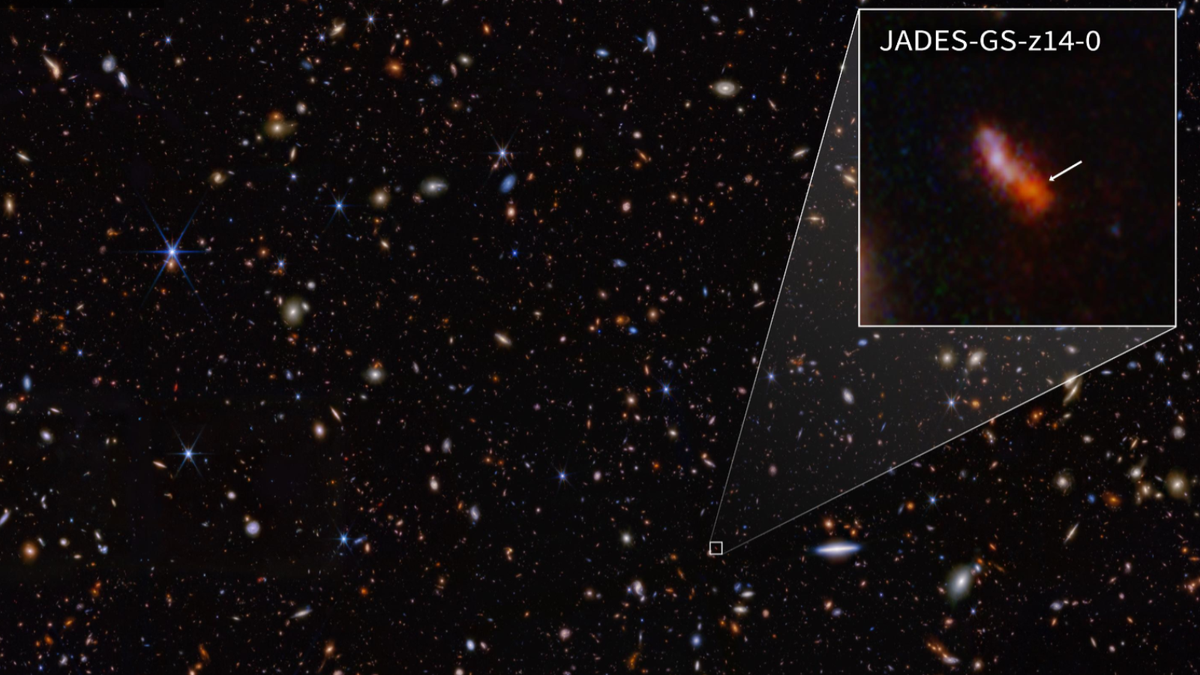hmm, light on answers but interesting questions
There are three proper distances worth keeping straight in one’s mind: Today’s (comoving) distance, the distance when the light set out, and the distance the light itself traveled.

http://lifeng.lamost.org/courses/astr553/Topic16/t16_three_distancesB.html
Who gave you the right to break my brain with one sentence?
“If the universe would just sit still, then light from a galaxy 33.8 billion light-years away would take 33.8 billion years to reach us, and that would be that. But, in the early 1900s, Edwin Hubble found that distant galaxies appeared to be receding away from each other, and the further apart they were, the faster they were going. In other words, the universe isn’t static; it is expanding”
If the universe isn’t 33.8 billion years old, how did that light make it here in 33.8 billion years?
Genuine question, I hope the article answers it. Bookmarking this for later while I return to writhing in bed recovering from a stomach bug…
The galaxy is 33 billion light years away now but the light started coming toward is when it was 13 billion light years away. The article is basically an introduction to this concept mentioned toward the end of the article:
“To avoid confusion, astronomers actually use two distance measurement scales: a co-moving distance that eliminates the expansion of the universe as a factor and a proper distance that includes it. That means the co-moving distance of JADES-GS-z14-0 is 13.5 billion light-years, while its proper distance is 33.8 billion light-years.”
Oops ! That article citation mixed them up … the comoving is the 33.8 one here … while the light travel distance is the 13.5.
Oh, gotcha, thanks for responding. That makes a lot of sense. Space at that scale gets so weird with timey wimey stuff
I am just guessing, but if a galaxy was 10 billion light years away when the light left the galaxy it would appear to be 10 billion light years away, but in an expanding universe that galaxy also moved away from us for 10 billion years. So, appearing 10 billion years away today might mean it’s 30 billion light years away right at this moment in time.
Btw, the whole measuring expansion via redshift, EM waves aren’t affected by the expansion? Because expansion would be 3D (not 2D) and we and our devices would get “bigger” too, not experiencing any difference…
Edit: getting downvoted for questioning my understanding…
Disclaimer: I could be wrong or not up to date, but this is my current understanding.
On the small scale, forces like electromagnetism and gravity pull things together much much faster than the rate of cosmological expansion. That’s why “we” don’t expand, and neither does our frame of reference. There’s a potential end to the universe where the rate of cosmological expansion (which increases over time) finally exceeds gravity and electromagnetism and eventually even the strong force, causing everything to fly apart forever.
Light waves propagate through spacetime itself, and basically it ends up being that there’s nothing pulling it back from expanding as the space it travels expands.




